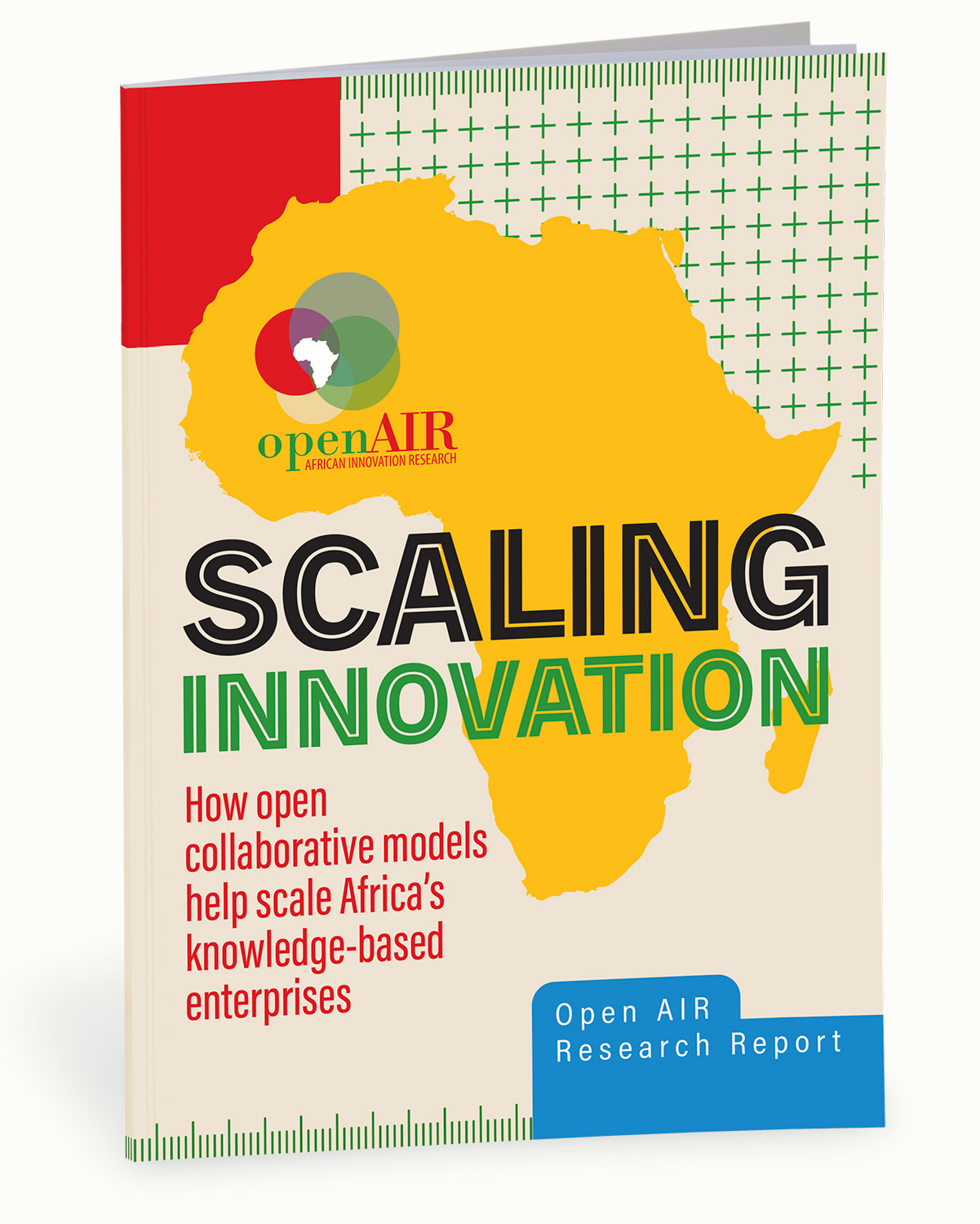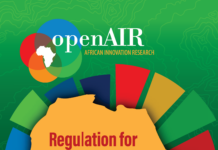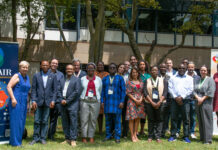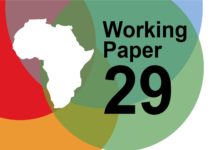
Summary
Global discussions often repeat the need for African businesses to “scale-up” in order for the continent to experience rapid economic growth that is truly “homegrown.” This is especially the case for knowledge-based businesses, which are essential in the modern global economy. Clarity as to what is meant by scaling-up and how African businesses can and should do this, however, is often lacking.
Drawing from more than 20 case studies of open, collaborative innovation in Africa, Open AIR has identified numerous dimensions of, and approaches to, enterprise-scaling. These case study findings are the core of Open AIR’s newest report, Scaling Innovation: How Open Collaborative Models Help Scale Africa s Knowledge-based Enterprises. This report, draws on research conducted since 2015 in Egypt, Tunisia, Morocco, Nigeria, Ghana, Ethiopia, Uganda, Kenya, Botswana, and South Africa.
The report shows there are four scaling “archetypes” that are frequently present in African knowledge-based enterprises:
- scaling by expanding coverage;
- scaling by broadening activities;
- scaling by changing behaviour; and
- scaling by building sustainability.
The report then gives detailed accounts and research findings from our five years of case studies, through the lens of this four-component taxonomy. These case studies reflect the range of knowledge-based businesses that are already present across the continent, such as:
- footwear and textile enterprises operating in informal-sector clusters in Addis Ababa;
- a beadworking and craft collective in KwaZulu-Natal Province, South Africa;
- vanilla-growers in Mukono District, Uganda;
- micro, small, and medium-sized enterprises (MSMEs) in Botswana;
- fishers in South Africa’s Western Cape Province;
- maker communities, including FabLabs, in Egypt, Tunisia, Morocco, Kenya, and South Africa;
- Nigeria’s Nollywood film industry;
- Indigenous enterprises growing medicinal plants and practicing traditional healing in South Africa’s rural Bushbuckridge area; and
- startups and established enterprises operating in technology hubs in Egypt, Nigeria, Ghana, Ethiopia, Kenya, and South Africa.
By viewing these enterprises’ scaling efforts through the lens of the four-component taxonomy, the report offers unique insights into the motivations and actions of these enterprises.
The report also finds that there are clear challenges African enterprises face when trying to scale. We caution that scaling must always be pursued with a clear awareness of its complexities. In addition, we highlight the ways in which African enterprises’ knowledge governance systems are often intertwined with their approaches to scaling, impacting these enterprises’ abilities to be socially and economically inclusive.
The report’s overarching aim is to illuminate scaling’s profound dynamism and complexity in African innovation settings. Such research is critical for the continent’s innovators, small enterprises, researchers, academics, private-sector actors, civil society players, and policymakers.










